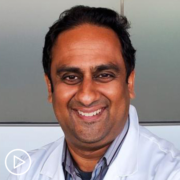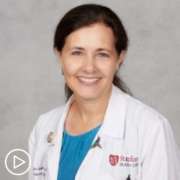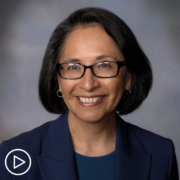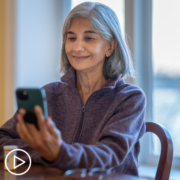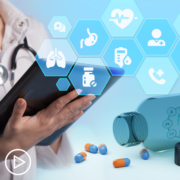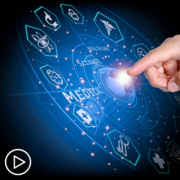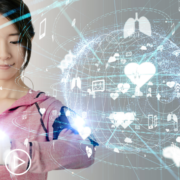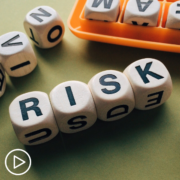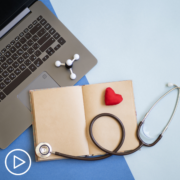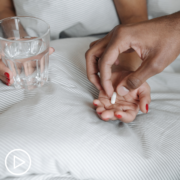The Role of Nutrition in Supporting People with Cancer During Treatment
Living with cancer is often a challenging experience. You may find you face various hurdles that are physical, psychological, and emotional in nature. Part of the key to navigating these is to have an effective set of tools at your disposal. This isn’t just a practical way of addressing issues, but it can also help you feel more in control of your well-being at a time when you might feel you don’t have much agency.
These tools can take a range of forms. Certainly, the medications and treatments you utilize can impact your health. You might also be seeing a therapist or counselor who can introduce you to strategies to manage the psychological symptoms of your experience. But one of the most important elements that can influence your everyday wellness is your dietary choices.
Boosting Overall Wellness
People’s experiences with cancer can vary. Nevertheless, it’s important to focus on your overall health and wellness so you’re in the best possible position to navigate the challenges of your diagnosis. Nourishing your mind and body plays a key role in this regard.
Certainly, this involves maintaining a balanced diet. Fruits, vegetables, poultry, fish, and nuts can all be important in promoting good health when you are living with cancer. Protein sources such as eggs, seeds, and lentils can contribute to a strong immune system. You should also focus on your hydration by committing to regularly drinking water.
Alongside balancing the good food you put into your body, you should also avoid food and drink that can have negative impacts. In particular, alcohol can have detrimental health effects in both the short and long term. Its effect on your central nervous system can contribute to and exacerbate mood fluctuations, not to mention that chronic alcohol use is a cause of immunodeficiency. It is therefore healthier to cut out or significantly reduce alcohol consumption, at least as you navigate cancer treatment.
Using Substitutions and Supplements
Directly gaining nutrition from food isn’t always practical as a person with cancer. This is especially relevant when treatments can have an impact on your appetite. Not to mention that some drugs — like chemotherapy — may reduce certain protein and vitamin stores in your body. It’s vital to consider how some supplements and dietary substitutions can bridge the gap in your nutritional needs.
It’s important to be mindful when introducing supplements into your diet when you’re being treated for cancer. Take a targeted approach. Speak to your oncology team about what specific vitamins you may be deficient in or those that might have a strengthening or protective impact. You should also be aware that some supplements can be detrimental to the efficacy of treatment. For instance, botanicals like garlic, ginseng, and echinacea can disrupt how your body metabolizes chemotherapy drugs. So, be sure not to make changes without advice from your specialist.
One good approach to your nutrition is to find substitutions for difficult-to-digest or generally unhealthy food. For instance, while you may crave sweet foods, processed sugar can be detrimental to cognition, mood, and overall wellness. It is usually best to find substitutions in the form of healthy and naturally sweet food, such as fruits, nuts, and homemade snack bars. This can be a helpful strategy when you’re navigating the difficulties associated with treatment. Not to mention that natural foods may be more palatable when you’re experiencing nausea.
Mitigating Treatment Side-Effects
Navigating the reality of cancer in itself can be challenging. While treatment is a powerful tool in your management and recovery, it can also contribute to the difficulties you experience. The side effects of radiotherapy, chemotherapy, and a range of other elements can affect your quality of life. It’s well worth exploring how your nutritional choices can empower you to address these.
Appetite changes and nausea are among the most common side effects of cancer treatment. One helpful approach to this is to consume smoothies as opposed to solid foods. This may be easier on your digestion while helping you get the servings of fruits and vegetables you need.
In addition, some people with cancer find they live with diarrhea and other bowel or bladder issues as a result of treatment. You might find it better to minimize fried, spicy, or fatty foods, particularly in the immediate days after treatment. You could adopt a clear-liquid diet, involving broth, gelatines, and some fruit juices. Bananas and potatoes can also be positive components, which also serve to replace some potassium that diarrhea can deplete.
Conclusion
Nutrition has a vital role to play in empowering you to support your cancer treatment. There are some generally helpful approaches. Maintaining a balanced diet, using substitutions, and choosing food that helps you navigate symptoms are all essential steps.
Nevertheless, it’s also important to recognize just how nuanced a cancer diet can be. Collaborating with medical professionals on building a dietary plan is vital to not only meeting your nutritional needs but also to avoid mistakes that can negatively affect your treatment. Even something as simple as the frustration of not being able to eat your favorite foods is worth discussing with dietary experts. They may be able to direct you to ways you can safely incorporate flavor profiles you enjoy.
There’s no denying that your cancer treatment will be a challenging process. But with some planning, knowledge, and expert guidance, you can find nutritional approaches that bolster your experience.
Miles is an independent writer with a background in business and passion for tech, health, news, and simply helping people live happy and fulfilled lives. He has lived and traveled all over the United States and continues to expand his awareness and experiences. When he is not writing, he is most likely mountain biking or kicking back with a cup of tea.

